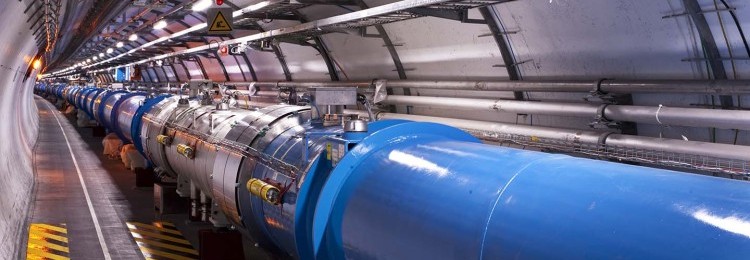
At CERN, the European Organization for Nuclear Research, physicists and engineers are probing the fundamental structure of the universe. They use the world's largest and most complex scientific instruments to study the basic constituents of matter, the fundamental particles. The particles are made to collide together at close to the speed of light. The process gives the physicists clues about how the particles interact, and provides insights into the fundamental laws of nature.
Company Description
At CERN, the European Organization for Nuclear Research, physicists and engineers are probing the fundamental structure of the universe. Using the world's largest and most complex scientific instruments, they study the basic constituents of matter - fundamental particles that are made to collide together at close to the speed of light. The process gives physicists clues about how particles interact, and provides insights into the fundamental laws of nature. Find out more on http://home.cern.
Job Description
Introduction:
Are you a qualified and proactive Applied Physicist, who has expertise in the design, operation and maintenance of highest precision alignment systems for large particle physics experiments? Then this opportunity is for you. Join the largest particle physics research laboratory in the world! CERN, take part!
The Experimental Physics (EP) Department carries out research in the field of experimental particle physics, supporting several experiments at the Large Hadron Collider (LHC) at CERN. ATLAS is a general-purpose particle physics experiment operated by an international collaboration, and it is designed to exploit the full discovery potential and the huge range of physics opportunities that the LHC provides. The physics reach of the ATLAS experiment is determined by its capability of measuring with high accuracy several physics quantities of the particles generated in the LHC collision, as the particle’s momentum.
To achieve the required momentum resolution for muons, the positions of all the measuring devices have to be known and kept under control with an accuracy of about 50 microns over a volume of 20x20x40 m3.
Functions:
You will be working on the alignment system of the ATLAS experiment, managing its several thousands of optical sensors which are measuring in real time the positions of muon chambers relative to each other as well as to calibrated reference objects.
You will be responsible for the maintenance and operation of this system and, in close collaboration with the ATLAS Muon project leader, you will:
Qualifications
Master's degree or PhD or equivalent relevant experience in the field of applied physics or a related field.
Experience:
Please apply using the apply button below.
| Education Backgrounds: |
Mechanical Engineering Micro / Nano Technology Physics |
| Specialties: |
Research (R&D) Semiconductor Physics Testing Thermodynamics Vacuum technology |
| Education Level: |
Doctorate (PH.D) |
| Experience: |
10 - 15 years 2 - 5 years 5 - 10 Years |
| Languages spoken: |
English |
| Job Location: | , , Switzerland |
| Keywords: | physics, detector, ATLAS, CERN, Switzerland, high tech, instrumentation, spectrometer, alignment, optics, optical, sensor, |

Type: Job
Deadline: 5th February 2020
Job reference (ID): 18414
Loading...